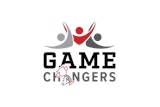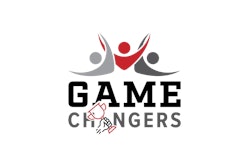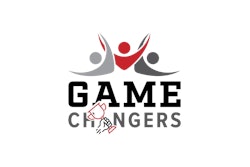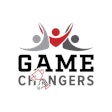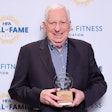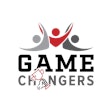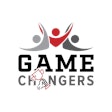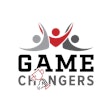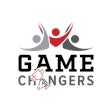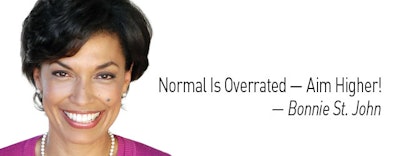
AB Show keynoter Bonnie St. John was just five years old when her right leg was amputated. Despite her disability, she went on to become the first African-American ever to win medals in Winter Olympic competition, taking home a bronze medal in the slalom, a bronze medal in the giant slalom, and a silver medal for overall performance at the 1984 Winter Paralympic Games in Innsbruck, Austria. After that she graduated Magna Cum Laude from Harvard University and won the Rhodes Scholarship, she was appointed by then President Bill Clinton as a director for Human Capital Issues on the White House National Economic Council. Given the rigor her career journey, it's probably not surprising that prior to her conversation with AB executive editor Andy Berg back in September, she turned on the treadmill beneath her standing desk. "I'm literally going to walk the talk," she quipped.
How did you get started skiing?
My leg was amputated when I was five years old, which was many years ago, and not as many people went to gyms as they do now. Women didn't really go to gyms. In fact a lot of men didn't go to gyms unless you were a body builder. And people with disabilities really didn't go to gyms. I was exempt from PE at school. So skiing was not a natural thing for me to do. But a friend of mine, Barbara, in high school invited me to go skiing with her family over Christmas vacation and that's what really got me started on skiing. Before going, I reached out to an organization of amputees that ski and the president of my local club in San Diego lent me his outriggers to go on my first trip. I couldn't even take a lesson — this wouldn't happen today — but they wouldn't teach me. They said, "You have one leg, we don't know how to teach you." Today almost every ski school would have someone qualified. They wouldn't just say, "No, go fall down." What happened with me was I just went out with Barbara and her brother, and they just kept picking me up. With one ski, you can't snowplow, so it was ugly. After that, I got a booklet on how amputees ski, and I went out with Barb's brothers, and that was my first week of skiing, and it was horrible. I couldn't stop! I was getting exhausted standing up and falling down pretty much in the same place. I remember knocking over this woman and she's laying on the ground looking up at me, and she's saying, "I'm sorry," because I have one leg.
What pushed you toward competition?
It actually happened pretty quickly. After I went with Barbara, I started going skiing with the other amputees. At that time, almost everyone went to National Championships, which was like a convention for all the disabled skiers. On the first day of the National Championships, they would have a qualifier, and they would determine whether you were in the elite racers or just starting out — it was sort of like anyone could race but they were on different levels. So I just went, and I loved it, and I was hooked. I really started racing so quickly, that I wasn't used to recreational skiing. My husband knows, I've never really been much for wandering around a mountain on skis. I hadn't really done much of it. And that's really a metaphor for my personality. I'm pretty Type-A.
What was it like entering the world of skiing and snow sports at that time?
Barbara was white, I'm black. She had two legs, obviously I have one. And she's on the tennis team, and I was exempt from PE. So for her to reach out and ask me to go skiing was really amazing. Also, I was bussed across town to go to her school. So I lived on the wrong side of the tracks, and nobody in my neighborhood went skiing. So it's amazing that she reached out. It strengthens us when we have that adversity. When I won medals, the people behind me on the podium were not American. If I was not there, America would have won fewer medals. So literally, Barbara reaching out to somebody — I mean, the U.S. Ski Team was not actively recruiting one-legged black girls from San Diego — but Barbara was, and that reaching out is really important in this industry.
How has athletics helped you prepare for a career in business?
I think athletics is great preparation for business. There are a lot of parallels. They say people who have won Olympic medals have failed more than anyone else. You have to be willing to fail at something in order to get good at it. I think the same thing is true of business — you have to go through rejection. You have to go through failure in order to win and learn from failure and bounce back and take rejection and persevere — all of those are lessons that you get from athletics that also apply to business.
Do you still ski?
Not competitively, but I still do ski recreationally.
What takes you back to the mountain these days?
It's so close! I live near a ski area. My husband was a ski instructor, so we lived in New York City and had a ski house up in the Catskills. We moved into our ski house after all the kids left home, and we travel from here now. We live four miles from a ski area, so in the winter I can ski in the morning and work in the afternoon.
What progress have you seen in terms of inclusion in winter sports?
There are not a lot of black people in winter sports. But there has been progress there, too. Here's an interesting story. I went back to the Salt Lake Olympics in 2002, and I got to be one of the opening speakers for the opening ceremonies of the Paralympics. I also did some volunteering for the Olympics, as well, so I was there for the Olympics and the Paralympics. It was a phenomenal experience to be there and give back to the sport. While I was there, I ran into Ben Gunderson, who was the head coach at Burke Mountain Academy when I was training there in high school, and he says to me, "I'm so sorry." And I said, "Why?" And he said, "When you came to the academy you were the first amputee there training and skiing, and I didn't know what to say, so I just didn't say anything." It didn't cause me a problem that Ben wasn't able to help me at the time, but here he was apologizing. I think inclusion is not easy. He didn't know what to do, and so he just didn't say anything. Inclusion requires intention and maybe getting out of your comfort zone. Just saying that you're going to treat everyone the same doesn't work. That's not inclusion. We do have to be mindful of people's differences, and you often do have to stretch yourself to include people that are out of your experience, or that you don't really know what they're going through. But the punchline to that story is that Ben was in Salt Lake City as the senior alpine official at the Paralympics. Obviously, he made a decision to learn something about disabled sports, and to contribute to disabled sports.
What advice do you have for a young athlete with a disability?
My leg was birth defect, so I've had it all my life. I've had to explain to people what happened to me, or how to help me, or how to interact with me — and some people get really tired of explaining. They're like, "Why do I have to be the one who does all the heavy lifting?" And I guess I would just say that it's a privilege to get to be the bridge. There's a quote from Amelia Earhart that goes something like, if you already have a runway, great, take off. But if not, build the runway for the people behind you. It's interesting, athletics is certainly important to me, but I think the inclusion aspect is also really important. You think about it, I'm a black kid from a city who went into winter sports, and I joke that skiing with one leg is hard, but skiing with no money is really hard. And it was a big joke, as I was always the only black kid out there. You had to have courage. You had to be willing to feel uncomfortable. You have to be willing to be comfortably uncomfortable to do any kind of athletics anyway. But double that when you think about being black and skiing, or having one leg in that sport. You had to get really comfortable taking risks, being uncomfortable, jumping into the unknown. So that allowed me a lot of freedom to do and try things that otherwise I wouldn't have done.
This article originally appeared in the November | December 2019 issue of Athletic Business with the title "AB Show keynoter and downhill medal winner Bonnie St. John talks inclusion in winter sports." Athletic Business is a free magazine for professionals in the athletic, fitness and recreation industry. Click here to subscribe.














